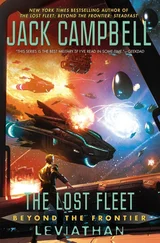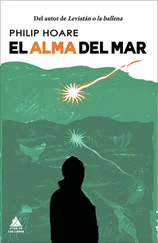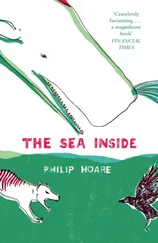Swinburne, the son of an admiral, had a picturesque beach from which to swim; I grew up in a suburb on the other side of the Solent – a place of working docks and cranes and shipyards, close to which my father worked in a cable factory, testing huge insulated telecommunication lines which ran along the Atlantic sea-bed, as if tethering England to America. From my box bedroom at the back of the house I could hear the ships’ horns on foggy mornings; at night, clanking dredgers gouged out a route for the huge liners and container ships that ply Southampton Water. Here, the sea represents commerce, rather than recreation. A port is a restless place, a place of transit, rather than a place in itself. Here, everything orientates itself towards the water – even the area in which I lived, Sholing, was a corruption of ‘Shore Land’ – yet at the same time the city seemed to ignore it, as if it and the element that is the reason for its existence were two entirely separate entities.
I think differently about the water now. Every day that I can, I swim in the sea. I feel claustrophobic if I am far from the water; summer and winter, I plan my time around the tides. Sitting on the shingly beach, I watch the ferries pass each other, briefly joining superstructures before they part again, caught between somewhere and nowhere. Pushing out into the same waters that so excited the red-haired poet and bore up his pale, freckled body, I lie on my back, on a level with the land, letting the waves wash over me like a quilt. Unencumbered, unobserved, in the warm waters of late August or in the icy rough seas of December, I am buoyed up, suspended, watching the world recede along with my clothes on the beach.
Sometimes something gelatinous will brush against my leg – one of the cuttlefish that are often cast up on the shore, their mottled flesh, hard parrot beaks and slimy tentacles rotting away to reveal the chalk-white bone below. Sometimes I’ll feel a sharp sting after an encounter with an unseen jellyfish. Yet I still go out of my depth, where no one can find me, where terns dive and cormorants bob, and where I have no knowledge of what lies below. I dream of bodies underwater, veiled yet animate, like the drowned woman in the lake in The Night of the Hunter , or the shark I thought I once saw in a Cornish cove from the top of a cliff. The way the water both reveals and conceals still disturbs me. It is a deceptive and heartless lover.
Consider the subtleness of the sea; how its most dreaded creatures glide under water, unapparent for the most part, and treacherously hidden beneath the loveliest tints of azure.
Brit, Moby-Dick
Cities and civilizations rise and fall, but the sea is always the sea. ‘We do not associate the idea of antiquity with the ocean, nor wonder how it looked a thousand years ago, as we do of the land, for it was equally wild and unfathomable always,’ wrote the philosopher, Henry David Thoreau. ‘The ocean is a wilderness reaching around the globe, wilder than a Bengal jungle, and fuller of monsters, washing the very wharves of our cities and the gardens of our sea-side residences.’
The sea is the greatest unknown, the last true wilderness, reaching over three-quarters of the earth. Its smallest organisms sustain us, providing every other breath of oxygen that we take. Its tides and shores determine our movements and our borders more than any treaty or government. Yet as we fly over its expanses, we think of it – if we think of it at all – merely as a distance to be overcome. In our arrogance, we consider that we have tamed the ocean, as much as we have conquered the land.
… man has lost that sense of the full awfulness of the sea which aboriginally belongs to it … Yea, foolish mortals, Noah’s flood is not yet subsided; two thirds of the world it yet covers.
Brit, Moby-Dick
Once you have seen it, it is impossible to forget, just as if you never saw it, it would be impossible to describe. The sea is always in my head, the means by which I orientate myself to the earth – even in Red Cloud, Nebraska, where I once queued on a hot afternoon to swim in a public pool, a big blue hole in the middle of the Great Plains. It was as far from the ocean as I have ever been, but somehow a memory of it at the same time. The utter absence of the sea made its existence all the more potent.
To the careless, the water may seem the same from one day to the next, but under observation it becomes a continuous drama, made up of a million vignettes or grand gestures, played out at the edge of the shore or on the open ocean. It is a natural spectacle capable of rising dozens of feet into the air, or lying low like a glassy pond, so mirrored that it might not be there at all, seamlessly joining earth to sky. Surging and peaking, self-renewing and self-perpetuating, it can take away as easily as it gives. It is as punitive as it is generous. Sometimes it seems to be a living creature itself, an all-engulfing organism through which all the world exists, yet we see so little of it as we go about our daily lives: a glimpse from the car or a plane, the smallest fraction, even as we are infinitesimal in turn, mere grains of sand. And as I linger on the sea wall on my bike, looking out over the water, calm and grey on an autumn afternoon, it is even more improbable to imagine that its unspoken surface was once broken by giant creatures.
The Whale and Grampus have been captured in Southampton Water, and on such rare occasions there have been of course the usual arrangements for sight-seers. Small shoals of Porpoises often visit the estuary; and the visitor from inland counties may be pleasingly surprised, as he walks the Quays and Platform, to see at a short distance from the shore many of these singular fish rolling and springing on the surface of the water, then disappearing, and rising again at another point to renew their awkward gambols.
Philip Brannon, The Picture of Southampton , 1850
In the early 1970s we went on a family outing to Windsor Safari Park, where the star attraction was a killer whale. My youngest sister, even more enthusiastic about whales than I was, bought a small colour brochure somewhat apologetically entitled
Dolphins can be fascinating at Windsor Safari Park .
On the front cover was a grinning Flipper; on the back was an advertisement for Embassy Regal cigarettes which, we were informed, were ‘outstanding value’.
‘You will be amused and delighted,’ the booklet went on, by ‘some fact and figures which might increase your knowledge, and enhance your enjoyment of their performance. You might also want to take some pictures of your own – take as many as you like!’
After shots of animals lolling at the pool like beauty contestants or leaping in the air like acrobats, a new player appeared in the programme:
‘He is growing at the rate of 1 foot per year,’ we read – a fact that raised inevitable consequences, even as we took in the oversized swimming pool in front of us – ‘and at only four and a half years old he is 16 feet long, weighs one ton, and eats between 80 and 100 pounds of herring a day’
He was specially caught for Windsor Safari Park off the coast of North America in 1970 and was flown to London by Boeing 707 in a special crate which allowed him to be sprayed constantly with water, keeping him cool and fresh. Eventually, by lorry and crane, he arrived in the dolphin training pool, and after a short time was ready to commence his training programme.
Only later would I learn that captive whales decline to eat, and are force-fed until they do. I was more concerned with the spectacle about to appear before my eyes.
I don’t remember how Ramu made his entrance (although my sisters do); but as he appeared, this sleek, powerful creature with his glossy black and white markings, it seemed as though his shiny skin had been bleached by the chlorine that kept the pool turquoise-blue; a pale, mocking imitation of the ocean which lay far away from his zoological prison.
Читать дальше












